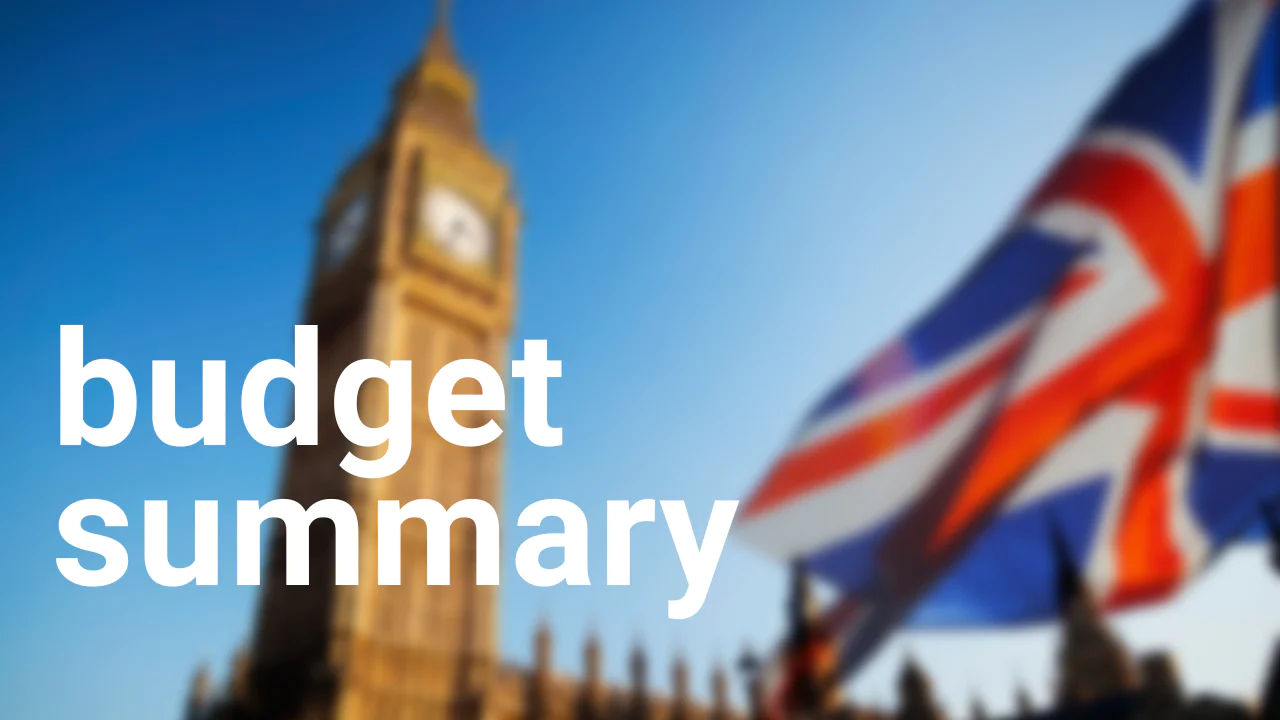
Budget Update
In his first Budget as Chancellor, Jeremy Hunt has announced several measures to re-engage those who have left the workforce and encourage business investment.
At the same time, provides a boost to pension savers with his Budget
We’ve summarised the key points for you.
Pensions
The cap on pension savings before incurring extra tax (known as the lifetime allowance) will be abolished. The Lifetime Allowance (LTA) is currently set at £1.07m.
This was the maximum you could have saved in your pension fund and often led to confusion and complex calculations to ensure you didn’t breach HMRC rules and pay unnecessarily.
It will be abolished from April 2024, and the tax-free cash entitlement will remain at 25% of your fund, but with a maximum of £268,275 based on 25% of the current LTA. Further clarification regarding what happens after April is to follow.
The actual change,e on the face of it,t is good. It will only affect higher earners and an estimated 4% of the population!
The amount you can pay into a pension, having been frozen for nine years, called the annual allowance,e will increase from £40,000 to £60,000.
This is the maximum amount you can pay into a pension per annum, and any increase is welcome.
There is also a change to the Money Purchase Annual Allowance (MPAA).
If you started taking an income from your pension, you were limited to £4000 maximum annual contributions if you wanted to carry on paying into your pension. This is now increasing to £10,000.
Considering the numbering of people who have accessed their pension early in the last few years, it is a welcome change. It will allow people to continue funding and obtaining tax relief.
State Pension.
The triple lock on the State Pension is maintained, guaranteeing the 10.1% CPI-based increase for next April and the same addition to the Pension Credit.
There has been an ongoing review of the State Pension age and whether the current change timetable is still appropriate.
The Government have said they will publish their response by May this year.
Taxes
The CGT annual exemption will be cut from £12,300 to £6,000 from April 2023 to £3,000 from April 2024.
Consequently, based on 2021/22 figures, an estimated 235,000 individuals must file a self-assessment return in 2023/24.
The rates of CGT will continue at 10% for gains falling in the basic rate band when added to income and 20% for revenues exceeding the higher rate threshold (18% and 28%, respectively, for increases on the residential property).
Inheritance tax
The nil rate band (NRB) and residence nil rate band (RNRB) will remain at £325,000 and £175,000 until April 2028.
Income tax
Rates – Income tax rates for 2023/24 will remain at the basic, higher and additional rates of 20%, 40% and 45% respectively.
The personal allowance and basic rate band will be £12,570 and £37,7,00, respectively, and will remain frozen until April 2028. This means the higher rate tax threshold will stay at £50,270 for those entitled to a total personal allowance.
Have your retirement plans changed due to the pandemic?
Read more about taking your pension on the Moneyhelper website
The Economy:
The Office for Budget Responsibility predicts the UK will avoid a recession in 2023, but the economy will shrink by 0.2%. Growth of 1.8% is forecast for the next year, with 2.5% in 2025 and 2.1% in 2026.
The UK’s inflation rate is predicted to fall to 2.9% by the end of this year, down from 10.7% in the last three months of 2022.
Businesses:
The primary corporation tax rate, which businesses pay on taxable profits over £250,000, will increase from 19% to 25%.
Companies with profits between £50,000 and £250,000 will pay a rate between 19% and 25%. Businesses can deduct new machinery and technology investments to promote growth and lower their taxable profits.
The Government will introduce tax breaks and other benefits for 12 new Investment Zones across the UK, each receiving £80m in funding over the next five years, with Liverpool City Region included
Chancellor Jeremy Hunt’s Budget announcements focus on encouraging those who have left the workforce to return, boosting business investment, and supporting various sectors through financial allocations and policy changes.
Help
It’s essential to stay informed about these developments and understand how they may impact your finances and future decisions. The aim is to help you navigate these updates and make informed decisions for your financial future.
With professional guidance and support, you can confidently adapt to the evolving financial landscape and continue working towards your financial goals.
